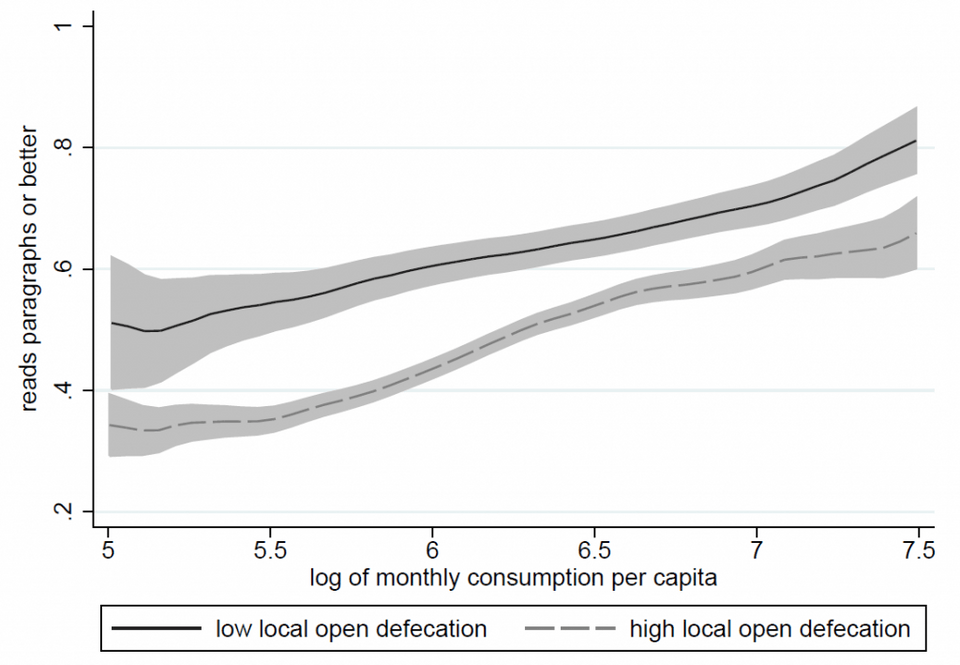Can better sanitation mean smarter children?
— Blog Post — 1 min read
That's what a new working paper, joint with Sneha Lamba, seems to suggest. Read the paper here: "Effects of Early-Life Exposure to Sanitation on Childhood Cognitive Skills: Evidence from India's Total Sanitation Campaign."
Some of you may have seen an earlier version of the paper, but this one is thoroughly revised. We compare children who were born in different years and in different districts of India, to see how their ability to read when they are school-aged is predicted by the sanitary environment in their first year of life. It makes sense that we find that sanitation matters for cognitive outcomes: better health and net nutrition in the critical first few years of life life helps children's bodies and brains grow their full potential.
The graph above is a small preview of the research in the paper. The horizontal axis is a measure of how rich or poor the child's household is. The vertical axis is the likelihood that the child can read. We have split the sample into two groups: children who live in villages where most people defecate in the open, and children who live in villages where most people dispose of feces safely in toilets or latrines. You can see that -- at all levels of rich and poor -- children who live in healthier developmental environments grow up to achieve more.
Although our research does not follow children into adulthood, it is easy to see how this has important implications for the entire Indian economy. Smarter children can grow into more productive workers -- all because of a healthier and safer first few months of life.
